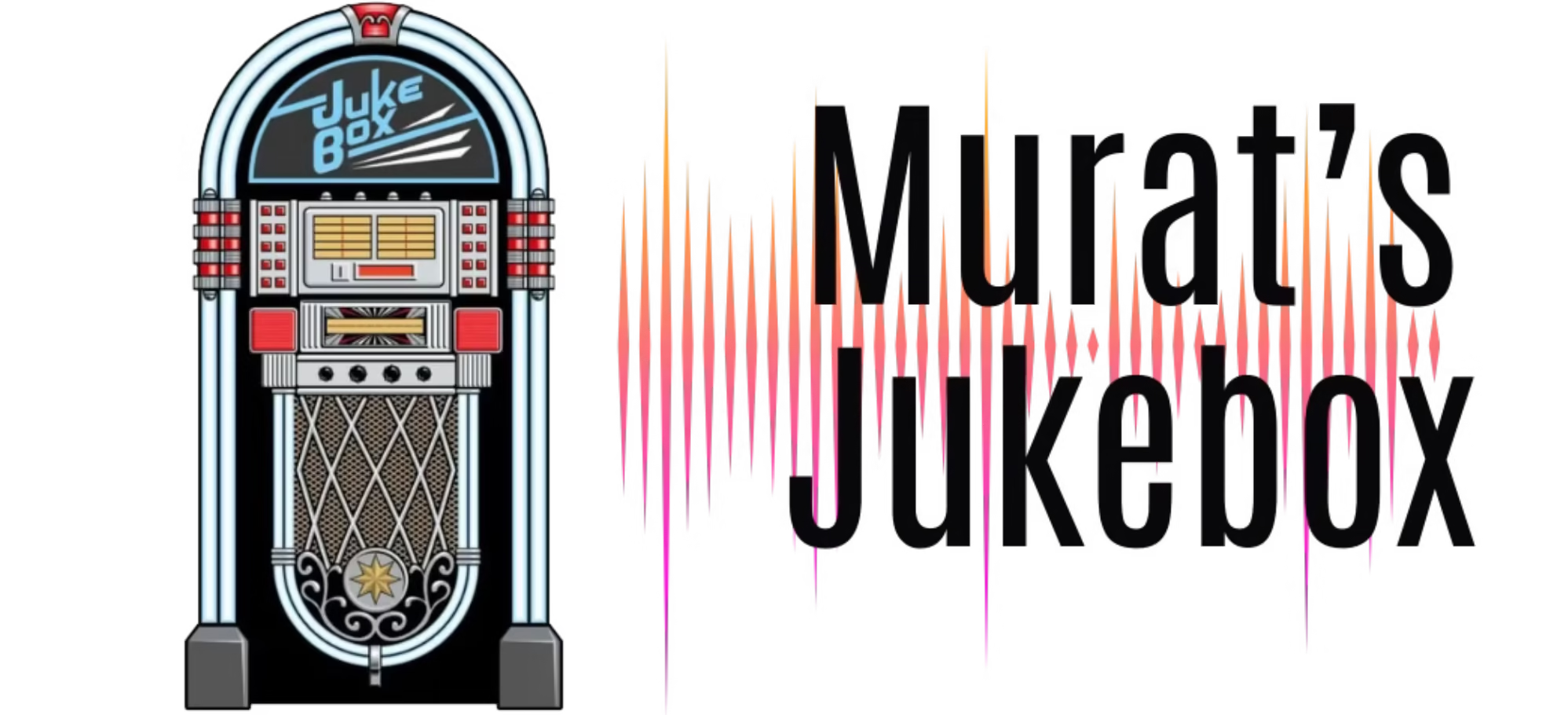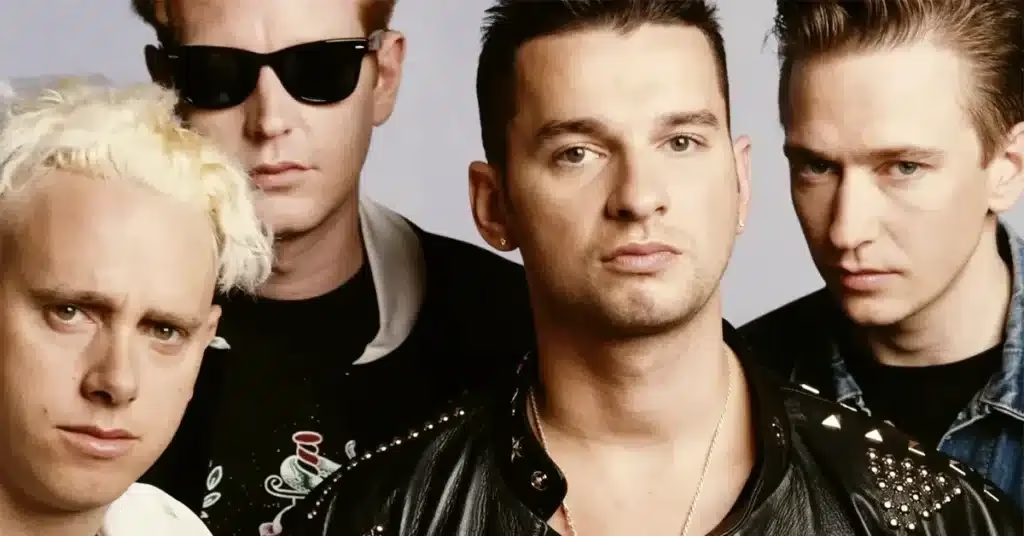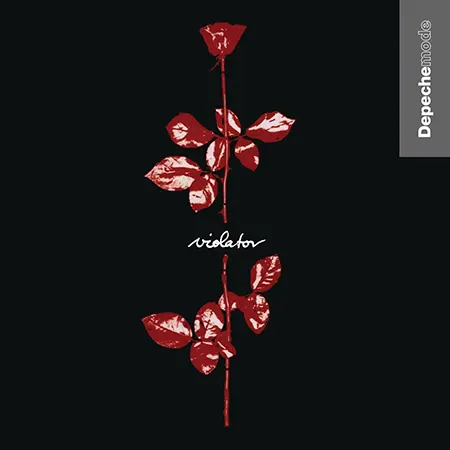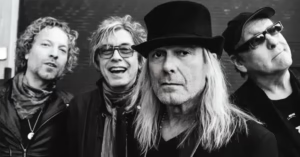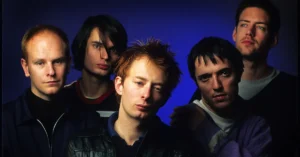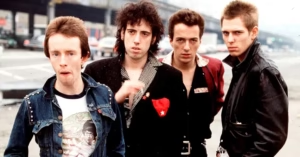Depeche Mode: From Synthpop Pioneers to Global Icons of Dark Pop
Depeche Mode. A Humble Beginning in Basildon
Depeche Mode was formed in in Basildon, Essex, England. Originally a product of the post-punk and New Romantic scenes, the band began as a synth-driven outfit inspired by acts like , The Human League, and OMD. The initial lineup featured:
- Dave Gahan – lead vocals
- Martin L. Gore – keyboards, guitar, vocals, primary songwriter
- Andy Fletcher – keyboards, management, and conceptual guidance
- Vince Clarke – keyboards, songwriting (1980–1981)
The name “Depeche Mode” was taken from a French fashion magazine, loosely translating to “fashion dispatch” or “fashion news.”
Early Success with Vince Clarke: Speak & Spell (1981)
The band’s debut album, Speak & Spell, was released in 1981 and included the massively popular single “Just Can’t Get Enough.” The album was bright, optimistic, and catchy, defining the burgeoning synthpop genre.
However, just after the album’s release, Vince Clarke left the group due to creative differences and discomfort with fame. He would go on to form Yazoo with Alison Moyet and later Erasure.
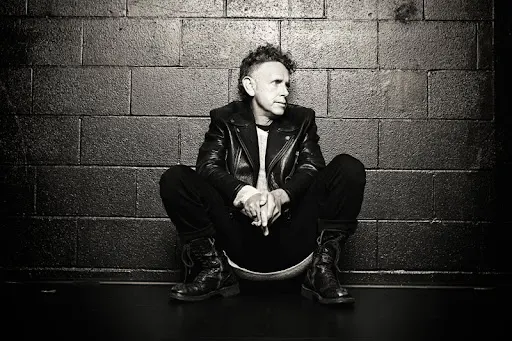
Depeche Mode. The Arrival of Martin Gore as Chief Songwriter
Following Clarke’s departure, Martin Gore became the band’s main songwriter. His lyrics brought a deeper, darker, and more introspective edge to the band’s music.
Their second album, A Broken Frame (1982), saw Depeche Mode experimenting with more melancholic themes and atmospheric textures, although it was still transitional.
With the addition of Alan Wilder in 1982 (who replaced the touring member), the group’s sound grew more layered, sophisticated, and bold.
Creative Growth: Construction Time Again (1983) and Some Great Reward (1984)
Wilder’s classical training and programming skills had a major impact. Construction Time Again (1983) introduced industrial textures, sampled found sounds, and socially conscious lyrics (“Everything Counts” critiqued corporate greed).
Some Great Reward (1984) elevated their status further with the darkly romantic anthem “People Are People,” which became a hit in both the UK and U.S. It explored themes of intolerance and human conflict—a recurring motif for the band.
From Cult to Iconic: Black Celebration (1986) and Music for the Masses (1987)
Black Celebration (1986) is often seen as the moment Depeche Mode fully embraced their gothic-electronic aesthetic. It featured bleak, atmospheric production and songs of emotional despair and longing like “Stripped” and “A Question of Time.”
Then came Music for the Masses (1987), an ironically titled album that was more accessible but still moody and complex. Songs like “Strangelove” and “Never Let Me Down Again” resonated with an expanding global fanbase.
By the late 1980s, Depeche Mode had evolved into one of the most important electronic bands in the world.
Global Superstardom: Violator (1990)
Released in 1990, Violator is the band’s most acclaimed and commercially successful album. It represents the perfect fusion of electronic minimalism, bluesy guitar riffs, sensual darkness, and pop appeal.
Highlights:
- “Personal Jesus” – a raw, stripped-down blues/electronic hybrid, inspired by celebrity worship and spiritual dependency.
- “Enjoy the Silence” – one of their most iconic songs, blending melodic beauty with emotional restraint.
- “Policy of Truth” and “World in My Eyes” – sensual, intelligent, and rhythmically infectious.
Violator turned Depeche Mode into full-fledged global superstars, reaching massive audiences in both America and Europe.
Chaos and Triumph: Songs of Faith and Devotion (1993)
The follow-up, Songs of Faith and Devotion (1993), was recorded in difficult circumstances. The band was strained by personal issues, and Gahan was battling heroin addiction. The album fused rock and gospel influences with their dark electronic base.
Key songs:
- “I Feel You” – a grungy, guitar-heavy track that signaled their shift toward a more organic sound.
- “Walking in My Shoes” – a poignant plea for empathy and understanding.
- “In Your Room” – haunting and sensual, with an orchestral arrangement.
Despite the tension, the album debuted at #1 in both the UK and US and was followed by a tumultuous world tour documented in Devotional (1993).
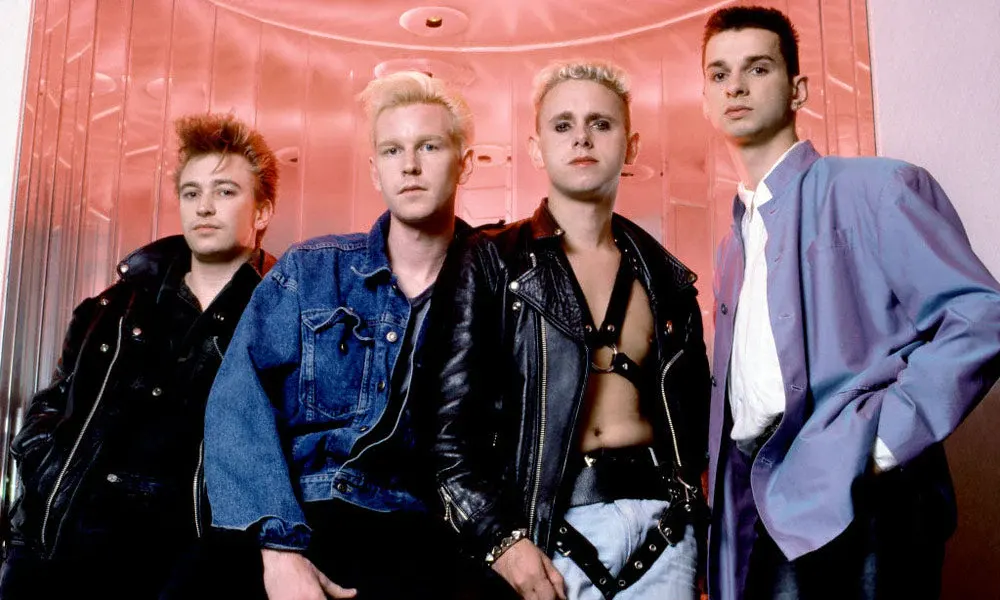
Depeche Mode. Departure of Alan Wilder and Rebirth
After the exhausting Devotional Tour, Alan Wilder left the band in 1995. His departure marked the end of a creative era and left the remaining trio to redefine their sound.
Gahan entered rehab, Fletcher took a step back due to mental health struggles, and Gore continued writing.
Depeche Mode. The Later Years: Reinvention and Maturity
Depeche Mode returned with Ultra (1997), a somber and introspective album, marked by tracks like “Barrel of a Gun” and “It’s No Good.” It reflected survival and emotional reckoning.
Subsequent albums continued their artistic evolution:
- Exciter (2001) – minimal and ethereal
- Playing the Angel (2005) – raw and emotional, with the standout single “Precious”
- Sounds of the Universe (2009) – retro-futuristic and sonically rich
- Delta Machine (2013) – gospel and blues-infused electronica
- Spirit (2017) – politically charged and urgent
Memento Mori (2023)
Following the death of Andy Fletcher in 2022, Gahan and Gore continued as a duo and released Memento Mori in 2023. The album is reflective, mournful, yet hopeful—touching on mortality, memory, and transcendence.
Songs like “Ghosts Again” were praised for their emotional resonance and beauty.
Depeche Mode. Band Members
- Dave Gahan – lead vocals (1980–present)
- Martin L. Gore – keyboards, guitar, backing and lead vocals (1980–present)
- Andy Fletcher – keyboards (1980–2022, deceased)
- Alan Wilder – keyboards, programming (1982–1995)
- Vince Clarke – keyboards, songwriter (1980–1981)
Legacy and Influence
Depeche Mode has sold over 100 million records and remains one of the most successful electronic bands of all time. Their influence stretches across genres and generations:
- They paved the way for synthpop, industrial, EBM, and darkwave.
- Artists from Nine Inch Nails, Coldplay, and The Killers to , Marilyn Manson, and even Kanye West cite them as a major influence.
Inducted into the Rock and Roll Hall of Fame in 2020, Depeche Mode has always maintained a cult following with intense fan devotion, especially in Europe, Latin America, and Eastern Europe.
Discography (Studio Albums)
- Speak & Spell (1981)
- A Broken Frame (1982)
- Construction Time Again (1983)
- Some Great Reward (1984)
- Black Celebration (1986)
- Music for the Masses (1987)
- Violator (1990)
- Songs of Faith and Devotion (1993)
- Ultra (1997)
- Exciter (2001)
- Playing the Angel (2005)
- Sounds of the Universe (2009)
- Delta Machine (2013)
- Spirit (2017)
- Memento Mori (2023)
Interesting Facts
- Depeche Mode holds the record for the largest attendance at a concert in East Germany before the fall of the Berlin Wall.
- Violator and Songs of Faith and Devotion each appear on numerous “greatest albums” lists.
- The band’s concerts often turn into spiritual experiences for fans, particularly in places like Mexico City, Berlin, and Moscow.
